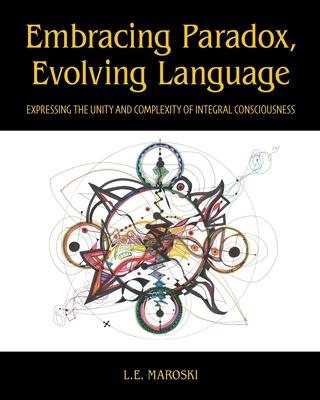In Embracing Paradox, Evolving Language: Expressing the Unity and Complexity of Integral Consciousness, L.E. Maroski proposes that humanity is poised on the cusp of a transformation of consciousness that requires not only a shift in values and perspectives, but also a shift in a basic technology we take for granted-language. Because we use language to create social structures and institutions, including education, governance, and our most intimate relationships, the structure of our language contributes to the way we structure those creations. Maroski questions the cultural assumptions that are built into the structure of language-primarily English-and invites the reader to imagine and ultimately to help develop novel structures of language that arise from different assumptions. To do so, she shows how we can draw inspiration from paradoxical topological forms, such as the Mbius strip and Klein bottle, as they embody both unity and duality/multiplicity. By seeing our reality not simply in terms of either/or but also in terms of both (many)/and, perhaps our feelings of fragmentation and the stultifying oppositions that have polarized society can transform into appreciation for the wholeness of all existence.

Embracing Paradox, Evolving Language: Expressing the Unity and Complexity of Integral Consciousness
In Embracing Paradox, Evolving Language: Expressing the Unity and Complexity of Integral Consciousness, L.E. Maroski proposes that humanity is poised on the cusp of a transformation of consciousness that requires not only a shift in values and perspectives, but also a shift in a basic technology we take for granted-language. Because we use language to create social structures and institutions, including education, governance, and our most intimate relationships, the structure of our language contributes to the way we structure those creations. Maroski questions the cultural assumptions that are built into the structure of language-primarily English-and invites the reader to imagine and ultimately to help develop novel structures of language that arise from different assumptions. To do so, she shows how we can draw inspiration from paradoxical topological forms, such as the Mbius strip and Klein bottle, as they embody both unity and duality/multiplicity. By seeing our reality not simply in terms of either/or but also in terms of both (many)/and, perhaps our feelings of fragmentation and the stultifying oppositions that have polarized society can transform into appreciation for the wholeness of all existence.